
Animals in Entertainment
Travel, confinement, and being forced to perform tricks deprive wild animals of anything that might satisfy their complex physical, behavioral, and emotional needs. Their lives constitute abuse as entertainment.


People are fascinated by animals. There is an undeniable thrill, seeing animals in zoos, circuses, movies, television shows, and amusement parks. Unfortunately using real animals for these purposes involves tremendous cruelty.
Animals conscripted into being entertainers lead lives of misery and indignity. Travel, confinement and being forced to perform tricks deprive wild animals of anything that might satisfy their complex physical, behavioral, and emotional needs. Their lives constitute abuse as entertainment.
These animals have few legal protections, and even those few protections are not adequately enforced. This need for stronger legal protections is clear.
Captive Orcas
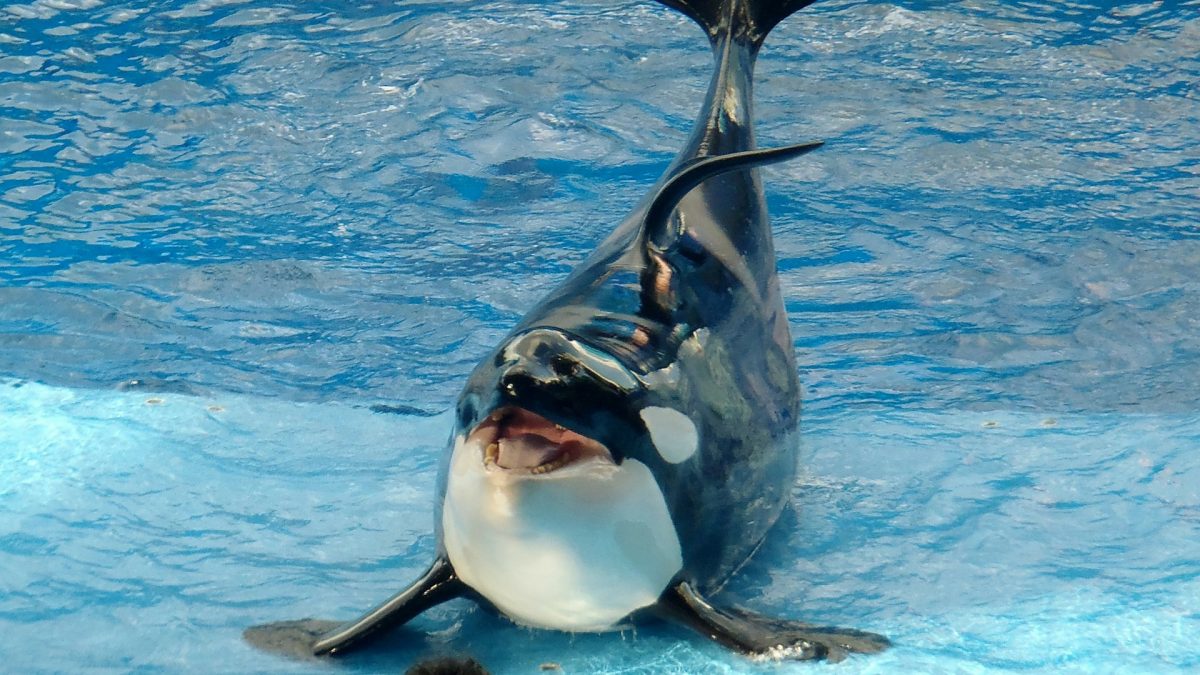
Keeping wild animals in captivity constitutes abuse as entertainment. Animals used by the multi-billion dollar display industry—like those found at SeaWorld and the Miami Seaquarium—include orcas, bottlenose dolphins and sea-lions.
Orcas in the wild exist in tight-knit family groups and can travel over 100 miles in a single day. Captive orcas are kept in small pools for entertainment, in which they cannot dive and must swim circles in shallow tanks. No federal laws prohibit the display of orcas in captivity, in fact the Marine Mammal Protection Act allows the capture of wild orcas for the purposes of “education” and entertainment.
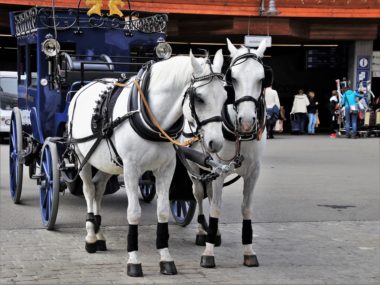
Carriage horses are forced to work year-round in the extreme heat and freezing cold, all while breathing in heavy exhaust fumes. Carriage horses are frequently denied water while working so they will not urinate.
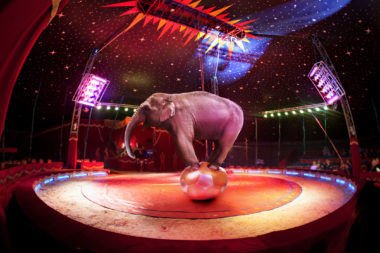
To force elephants to perform, exhibitors use firepoker-like devices called “bullhooks” to strike and jab elephants in the most sensitive parts of their bodies.
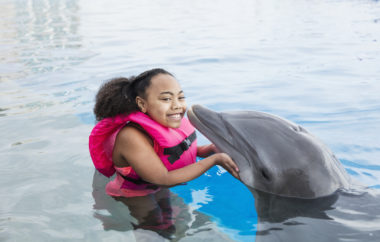
Dolphins used in swimming “encounters” have shorter lifespans than their wild counterparts due, in part, to the stress of intensive confinement and being forced to interact with humans.
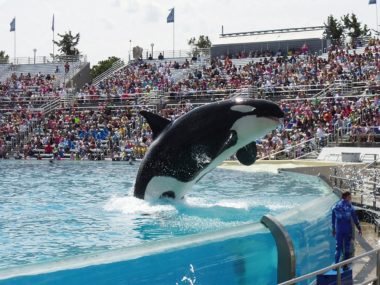
Captive orcas are separated from their families and endure social isolation causing severe physical and psychological distress.

Exhibitors routinely hit big cats, such as tigers, with sticks and withhold food to compel the animals to perform unnatural tricks.

Animals used in rodeos suffer severe and painful injuries including broken backs, internal organ damage, and snapped necks.
What is the Animal Legal Defense Fund Doing to Help Animals in Entertainment?
The Animal Legal Defense Fund files high profile lawsuits and lobbies and advocates for stronger laws to protect animals used in entertainment. And it’s working: We are seeing momentum at the state and local level to ban the use of some wild animals in circuses. Dozens of North American cities, along with a couple of states, prohibit the use of bullhooks—which, in effect, means a ban on circuses with elephants. Others, like San Francisco and Santa Fe, New Mexico, have full bans on performing wild animals.
There’s a burgeoning movement for the enactment of statewide bans on wild animal performances as well. Illinois and New York became the first states to ban the use of elephants in performances in 2017. And in 2016, California became the first state to ban the breeding of orcas in captivity, or the use of orcas in performances.
Until every animal used in entertainment is free of harm, the Animal Legal Defense Fund will keep fighting for better and stronger laws, and better and stronger enforcement of those laws.
What Can I Do To Help?
Your voice is needed, so that animals used in entertainment are better protected. Here are some ways you can help:
- Visit animal sanctuaries instead of zoos, marine parks or circuses. Boycott businesses that profit from cruelty to animals.
- Skip movies and television shows feature use live animals. Watch those employing CGI or other technologies, instead.
- Help inform others by writing letters to your local newspapers and posting to social media.
- Tell lawmakers you support animal-friendly legislation and local bans on using animals in entertainment.
Related News
-
California Governor Signs Animal Protection Bills into Law
The Animal Legal Defense Fund sponsored two bills protecting cats and wild animalsOctober 21, 2025 News -
Appeal Filed Over Court Decision Letting EPA Suppress Factory Farm Air Pollution Reporting
The EPA’s rule shields polluters as factory farm emissions kill more people than coal plantsOctober 14, 2025 News -
February Legislative Affairs Update
In this webinar, we’ll celebrate legislative victories from 2025 and preview what’s ahead in 2026.
Related Cases
-
Urging DOJ to Eliminate Unnecessary and Burdensome Labeling Laws
Submitted comments on September 15, 2025, in response to DOJ’s request for information about state-level labeling laws
-
Challenging the USDA to Provide FOIA Documents Related to the Beef Checkoff Program
ALDF v. USDA and AMS
-
Urging FWS Not to Rescind Regulatory Definition of ‘Harm’ Under the Endangered Species Act
Submitted comments against proposed rule on May 19, 2025
Looking for case and legal resources? View Resources
See More




